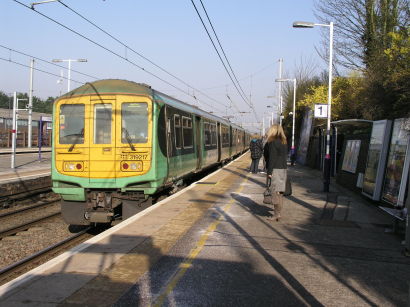SIEMENS has been confirmed as the builder of a new £1.6 billion fleet for Thameslink, beating Derby-based Bombardier.
The announcement has triggered a fresh debate about train-building in Britain.
The Department for Transport said the deal was 'close to completion', although there will now have to be a ten-day standstill period before the contract can be signed.
The winning bid, from a consortium led by Siemens, was first announced in principle two years ago this month, and the long delay is believed to have been caused by financial issues. The proposed contract involves funding as well as the design and building of the fleet.
Siemens has developed a new version of its Desiro series for the bid, known as 'Desiro City'. The reported size of the fleet has varied slightly from time to time, but the DfT now says it will be 1,140 vehicles.
The trains are needed by 2018, so that the wider Thameslink Programme can be completed. This will involve more routes, including the Great Northern line to Peterborough, and a peak frequency through the central London section of 24 trains per hour in each direction.
The existing Thameslink fleet, which consists of Class 319 and Class 377 units, is to be cascaded to other routes – including some which are newly-electrified.
The runner-up in the competition was Bombardier in Derby, and that company will now be pinning its hopes on the next major order, thought be worth in the region of £1 billion, to build 600 vehicles for Crossrail.
Shadow transport secretary Maria Eagle said that the Thameslink procurement must be the 'last to stack the odds against British jobs and apprenticeships'.
She continued: "It is inconceivable that any other EU country would have made the same decision, as is clear from the fact that nearly every train for the German and French rail network is built by their own workforce.
“After the doubts recently raised by the National Audit Office about delays to this project, Ministers must now say whether these trains will still arrive in time to enable new Thameslink services to begin in 2018. It would be a scandal if the Ministerial incompetence that has delayed this deal means that these vital new services cannot begin on time. It will be equally embarrassing if newly electrified lines are left without electric trains because the old Thameslink rolling stock is still needed in London.”


